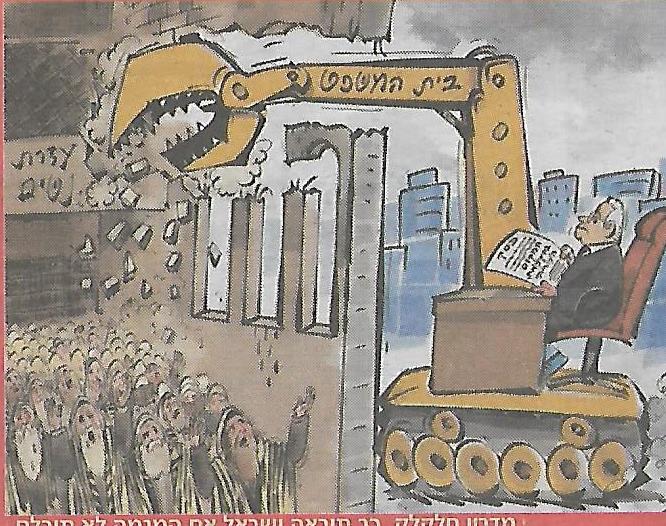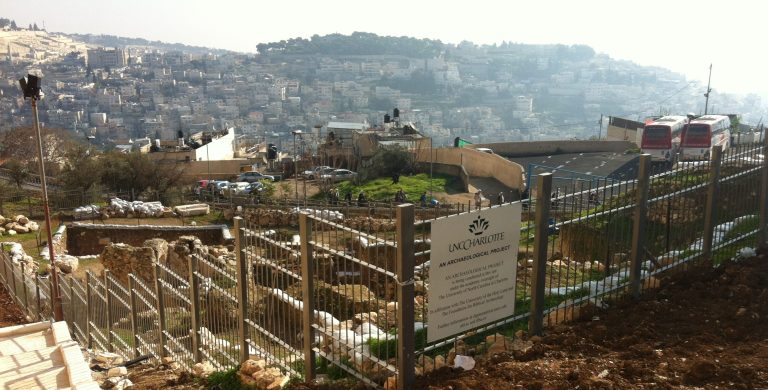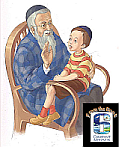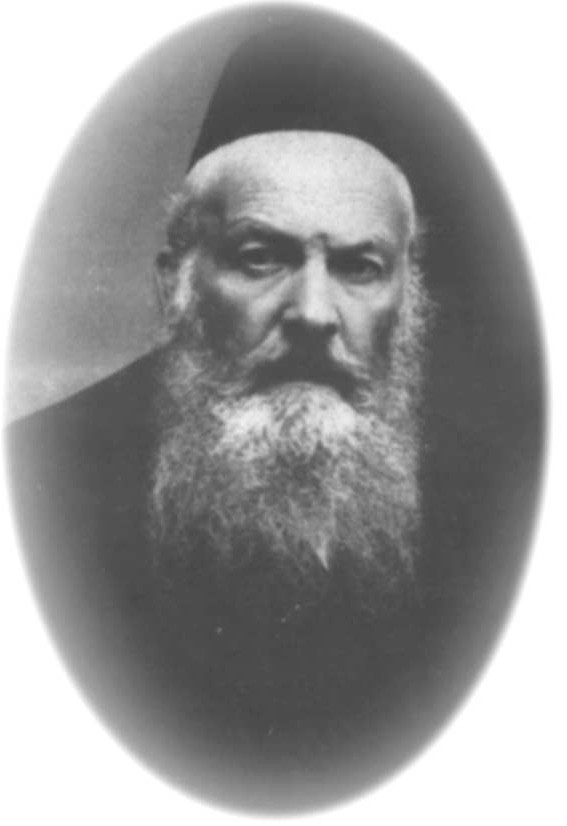  |
|
| |||||||||||||||
|
This Google Custom Search looks only in this website. Thoughts About the Corruption of the Western World - Parshas Voeschanan
And you shall remember this and act upon it. For it is your wisdom and understanding as seen by other peoples, since, when they hear all of these laws they will say, 'This great nation is truly a wise and understanding people.' (Devorim 4:6)
This is a famous posuk in the Torah portion of Voeschanan that is read this Shabbos in shuls around the world.
However in our times, in our day, this verse does not work. It does not describe the situation in which we find ourselves.
The city of Afula, located in the lower Galil, with a population of about 50,000. It has a small but active chareidi community, and there are no regular conflicts between religious and secular people there.
During the current year, the city is sponsoring 360 cultural events for the general community. Out of these, it wanted to hold one event for its own chareidi community: a concert of chassidic music by Motti Steinmetz. The chareidi community only attends events where men are seated separately from women. Steinmetz also only performs at events where men and women are separated. Thus it was natural, understood and accepted by all that the event would be held with separate seating.
In recent years there has been a systematic attack against events or any public affair in which men and women are separate. Public funeral halls are no longer allowed to post signs directing men and women to separate areas, or to announce that men and women should remain separate during the levaya. And a group of women mounted a legal attack on the Afula event.
We asked HaRav Yitzchok Zilberstein, member of Moetzes Gedolei HaTorah: In view of recent tragedies, should every driver buy warning system that will detect the presence of children left alone in a car?
HaRav Zilberstein replied:
Researchers digging at the University of North Carolina at Charlotte's ongoing archaeological excavation on Mount Zion in Jerusalem have announced a second significant discovery from the 2019 season öÌ clear evidence of the Babylonian conquest of the city at the time of the destruction of the First Beis Hamikdash.
The discovery is of a deposit including layers of ash, arrowheads dating from the period, as well as Iron Age potsherds, lamps and a significant piece of period jewelry — a gold and silver tassel or earring. There are also signs of a significant Iron Age structure in the associated area, but the building, beneath layers from later periods, has yet to be excavated.
The essay was originally published by R' Elchonon to give perspective on the events of his time, and how they were seen and foreseen by chazal. Although it first appeared in Yiddish in 5699-1939, eighty years ago, its message is still fresh and vital.
Part VII
The National Idea
The father of the modern national idea in Israel is the "Herald of the Dawn," who lived sixty (eighty) years ago, and fought all his life with great bitterness against the Torah. Apparently he thought that the Torah had already given up the ghost, and that he was to succeed it; for this reason he created an alternative to Torah in the shape of the national idea. In point of fact, this was not the absolute origin of the national idea. At that time, the time of the Balkan war, all the small Balkan people thought in terms of nationalism, seeking to throw the yoke of the Turks from their necks. The opportunity presented itself for him to take across the finished article and merely replant it on Jewish soil.
The main feature of this idea is that to be a Jew means to subscribe to the national idea and nothing more. His successors brought "their Rabbi's Torah" to perfection by their announcement that even an apostate is to be reckoned equal to any Jewish national.
From Our Archives
by Rav Yisroel Spiegel
We are now in the weeks of nechomoh for the
churban of the Beis Hamikdash. The
nevi'im console us in the haftoros following
Tisha B'Av starting from "Nachamu, nachamu ami" --
(Yeshaya 40:1). If we think somewhat deeper we can
find nechomoh in the Torah's instructing us how to
reach peace and tranquility in Eretz Yisroel, the land
Hashem swore to give to our fathers. It is naturally the
greatest nechomoh that after all the tragedies that
have befallen us we can be zocheh to return to the
way we once lived.
There is a deluge of thunderous voices from every direction:
hostile Arab countries surround us, the world is against us.
There is no country in the world like Hashem's inheritance
in Eretz Yisroel which is so resented and threatened and so
many crucial decisions have been made concerning it. Almost
all non-Jews seem to challenge Eretz Yisroel's remaining in
Jewish hands.
by HaRav Yitzchok Silberstein with Rabbi Tzvi
Yabrov
There are many areas of life where waiting in line is
unavoidable. When there are a number of applicants for
treatment, for services or for assistance, they are usually
attended to on a first-come-first-served basis. This article
deals with whether and under what circumstances, it may be
justified to put a later arrival ahead of others in line. In
the course of the discussion, the halachic basis for the
whole idea of waiting in line is examined.
First, some common questions relating to queue-jumping.
EARLIER EDITORIALS
A Mission to Spread
Daas Torah
Looking for the
Best in Yiddishkeit
The Immorality
of Palestinian Combatants and Noncombatants
|
||||||||||||||






